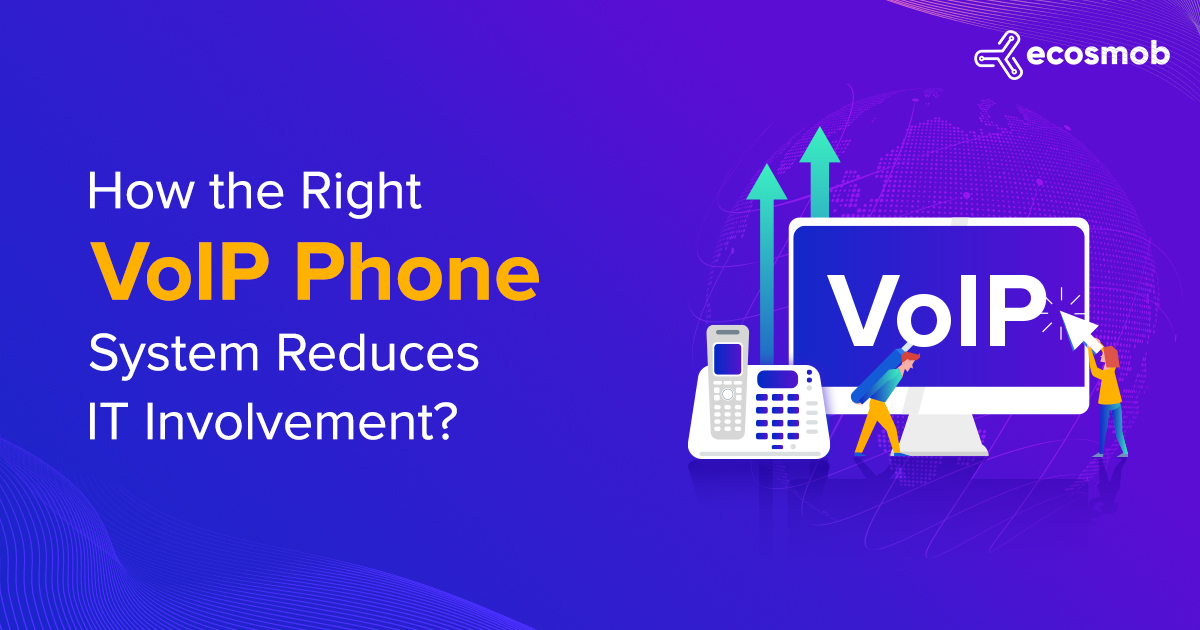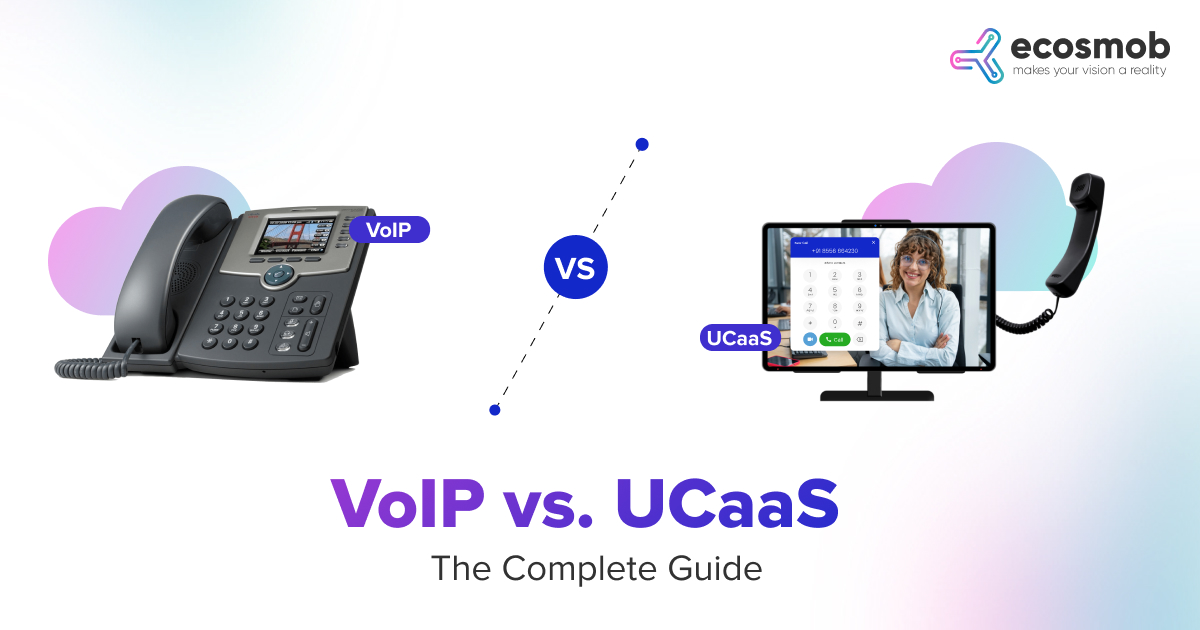The days of legacy phone systems are behind us. There were several problems associated with them that made business use almost impossible. The long wait times to get connected were a problem for sales and customer service teams. The old phone systems were also very costly and time-consuming to set up and maintain compared to modern VoIP solutions. There needed to be a separate team to take care of them as the IT team did not have the time or the necessary expertise to work on issues related to legacy phone systems. Also, the issues with legacy phone systems could happen in many places and not everything was under the control of the business as they had to rely on physical phone lines laid for communication by a service provider, and anything could happen to them.
Enter VoIP, with its experience of 24×7 uninterrupted connectivity as long as an Internet connection of VoIP solution providers. And IT needn’t play a big role in managing VoIP phone systems. You would need the assistance of a VoIP solution provider to manage the initial phases of setup and maintenance of your VoIP business solution. Once it is configured and set to go, the only interruptions you face are because of a loss of connection to the Internet. It is easier to add new users, supports new functionality, is transparent, and is considered more secure overall.
The role of IT in managing business phone systems
The IT team in your office is usually a team of people with a degree in Systems Management or some technical training that lets them manage computer systems and solve related problems. Let us now look at the roles and responsibilities of the IT team in a company:
1. Oversee and maintain well-functioning networked systems
2. Reinstall and maintain system hardware and software
3. Deciding on new applications or fixes to be installed
4. Troubleshoot issues with hardware and software
5. Adding and removing users to/from a system and the network
These are just some of their roles and responsibilities on a day-to-day basis, or rather the front-facing activities of the IT team. However, they have other responsibilities, such as allocating budget to systems that could enhance employee’s productivity and reduce project turnaround times. An example is if the team is looking for a customized VoIP solution. For this, the IT manager and the IT director would consult and draft a plan. The plan would also include thoughts on setting things up for as little maintenance and as much ROI as possible.
How does IT evaluate the business phone systems?
A business phone system is still the backbone of any company’s business. It helps generate revenue for the company by supporting the function of the team most crucial to company success, the sales team. The CTO or IT director of the company would be concerned about how technology can be used to improve the client and customer-facing and internal processes that affect the employees productivity. There are three possibilities to consider for a business phone system:
Traditional PBX – A private branch exchange that allows those within an organization to communicate. Everyone has an extension and can talk to each other. No instant messages or video conferencing is possible.
IP PBX – An IP PBX adds some internet capability to a PBX connection by allowing external calls to be made by using the infrastructure provided by a VoIP solution provider. The initial cost and monthly cost for IP PBX are highly prohibitive. No additional features are enabled for IP PBX.
VoIP – Here is where you create a business phone system that entirely relies on the Internet. It operates without any traditional hardware. With a VoIP business solution and support from your VoIP solutions provider, you have advanced features like instant messaging, video conferencing, and UCaaS. The initial cost of setup and the monthly costs are very reasonable, making VoIP the obvious choice for you.
Read our another blog on Benefits of Multi-tenant IP PBX Solution
Questions to ask when evaluating a VoIP-based phone system
So you have now decided to go with VoIP. However, there are some obvious questions you need to ask when evaluating a VoIP-based business phone solution for your business.
Are you setting up a new phone system or upgrading?
What is the kind of phone system that you are currently using?
How reliable is your internet connection?
What call volume that you generally experience on a hectic day?
Do you want to set up remote teams or distributed teams?
Will you be setting up a virtual call center?
Are there any budgetary constraints you have?
What are the specific VoIP-enabled features you are looking for?
How VoIP-based phone systems reduce the involvement of IT
VoIP-based systems offer a number of benefits that reduce IT workload and let them focus on other activities, such as improving other sides of the infrastructure for efficiency and productivity. Let us look at some of the ways in which the involvement of IT is reduced:
Time for onboarding is highly reduced
It now takes a few minutes and not hours to onboard a user onto a VoIP-based system and to gain a complete understanding of how it works. And this helps to retain users as well. Remote onboarding is also possible.
No equipment to maintain
Since it is a software-based VoIP system and your VoIP solutions provider hosts everything, there is any equipment that your IT team needs to maintain.
Remote assistance is possible
In case of any issues related to how the VoIP software is functioning, if the IT team is adequately trained, they can work on them remotely. The IT team may be off-site or working from home, and they could still offer solutions. The VoIP software could be customized as per the needs of employees, customers, and the IT team also.
Reduced work for the IT team in case of relocation
If you relocate your office or add new systems, then the phone numbers would remain the same and there is very little to reconfigure as everything is in the cloud, hosted by your VoIP solutions provider, and whatever endpoint application is installed will remain the same.
IT team won’t have to take security measures
IT team is usually concerned with the security of IT systems and related devices within a company’s premises. However, in this case, they would not have to worry about taking security measures as the VoIP solution provider already secures the customized VoIP system, and every system is well guarded against the risk of a data breach.
VoIP-based phone systems have a host of great features, improving productivity and reducing turnaround times. Yes, your IT team will have a role to play in your VoIP-based network, but it will not be a burden and in fact, they would be relieved of a lot of the earlier hassles from the traditional PBX or even an IP PBX.
If you want to set up a VoIP-based phone system in your organization, feel free to connect with Ecosmob at sales@ecosmob.com, a world-leading customized VoIP solution provider, today!










